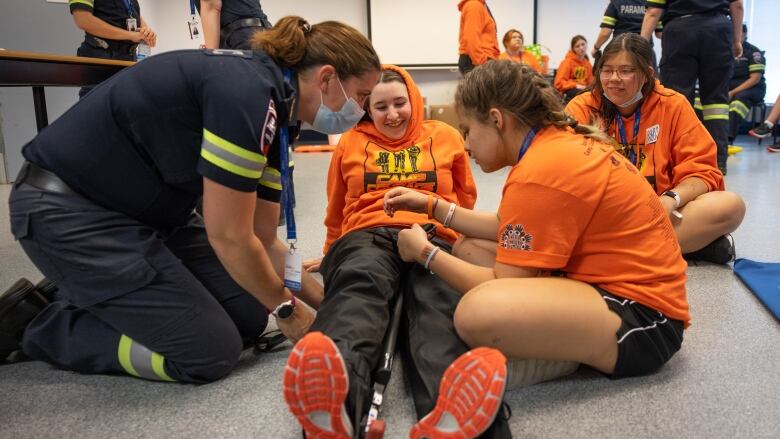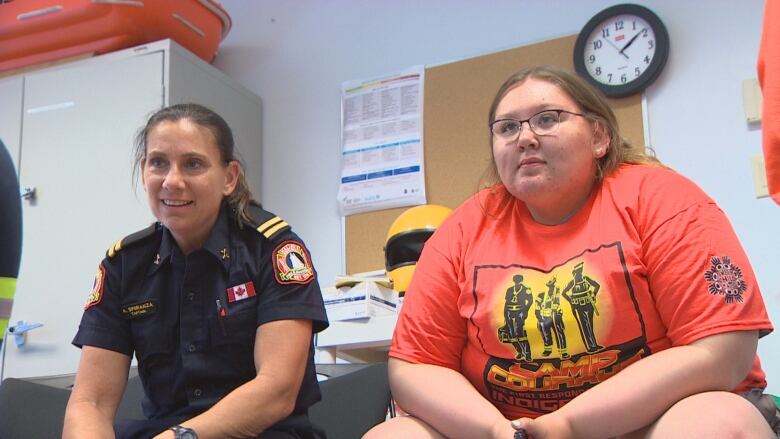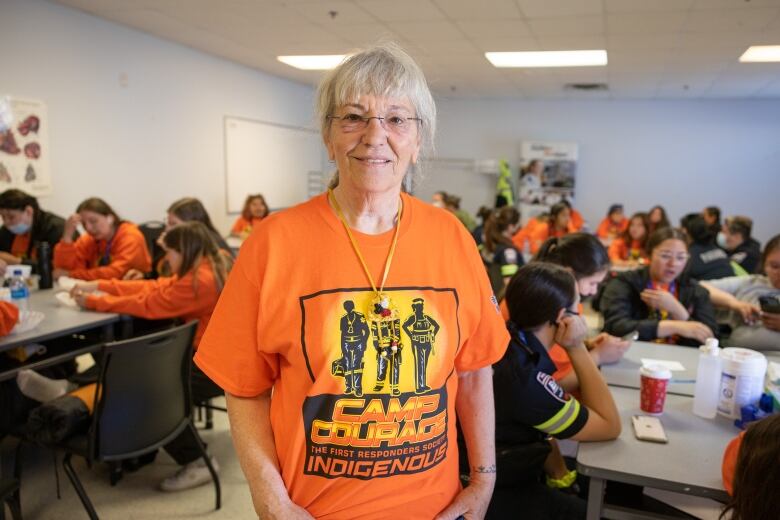Nova Scotia first responder camp 'life changing' for Indigenous girls
Camp Courage teaches girls to splint legs, lift fingerprints, and climb giant ladders

A first responder camp for Indigenous teenage girls is underway in Halifax and Dartmouth this week.
Camp Courage was founded in 2006, but this is the first time they've held the camp with an Indigenous focus.
Twenty-eight girls came from across Atlantic Canada to participate in the free camp. They were selected by writing an essay on how they would help someone in their community.
Eliza Gould from Eskasoni First Nation said she's always wanted to be a firefighter because "they're the heroes in everyone's lives."
She said the camp has helped her grow her confidence.
"When I first got here, I was really shy. I didn't want to talk to anyone, but then once I got out of my comfort zone I really got to open it up to people, like meeting new friends," Gould said.
Do it to love it, founder says
Andra Speranza, who works for Halifax Regional Fire and Emergency, founded the camp in 2006 because she didn't see enough female representation in emergency services.
"I felt that if they could do it themselves, feel it and experience it, they would love it just as much as we would," said Speranza.

Over the course of a week, the girls learn skills like splinting a leg, placing an IV, lifting fingerprints, and climbing a 30-metreladder.
"Our goal always is to develop for future leaders. So, we want to incorporate them within the emergency services so that they can affect change that's appropriate to their culture and their life experience," Speranza said.
The camp starts each day with smudging, crafts, and Indigenous teaching from Mi'kmaw elder Marlene Companion.
For these girls, Companion said, the camp can be "life changing."
"I'm lost for words because I didn't anticipate this. The growth and the friendship, the humility, the compassion that everyone here is showing is amazing."

Companion saidthere isn't enough representation of Indigenous people in first responder careers.
"Many of the family physicians, people that work in ERs, they're so overwhelmed and so busy that when a person comes to their office for medical care, they don't see the person's culture because they're too busy," Companion said.
'They're just better inside'
The camp has seen 36 per cent of graduates going into emergency services, but Speranza said that's not the camp's only goal.
"It doesn't even matter to me. If they do go into police, fire, paramedic that's a great benefit.But if they're just better inside, happier, it will help them achieve any goals that they want," Speranza said.

Camp Couragehas already expanded to Calgary, and Speranza hopes to bring the Indigenous camp to other provinces as well.
As for Gould, the camp has been a success.
"I feel like it's the best experience ever," said Gould. "I love all the people, all the new friendships I made."












_(720p).jpg)


 OFFICIAL HD MUSIC VIDEO.jpg)
.jpg)



























































































